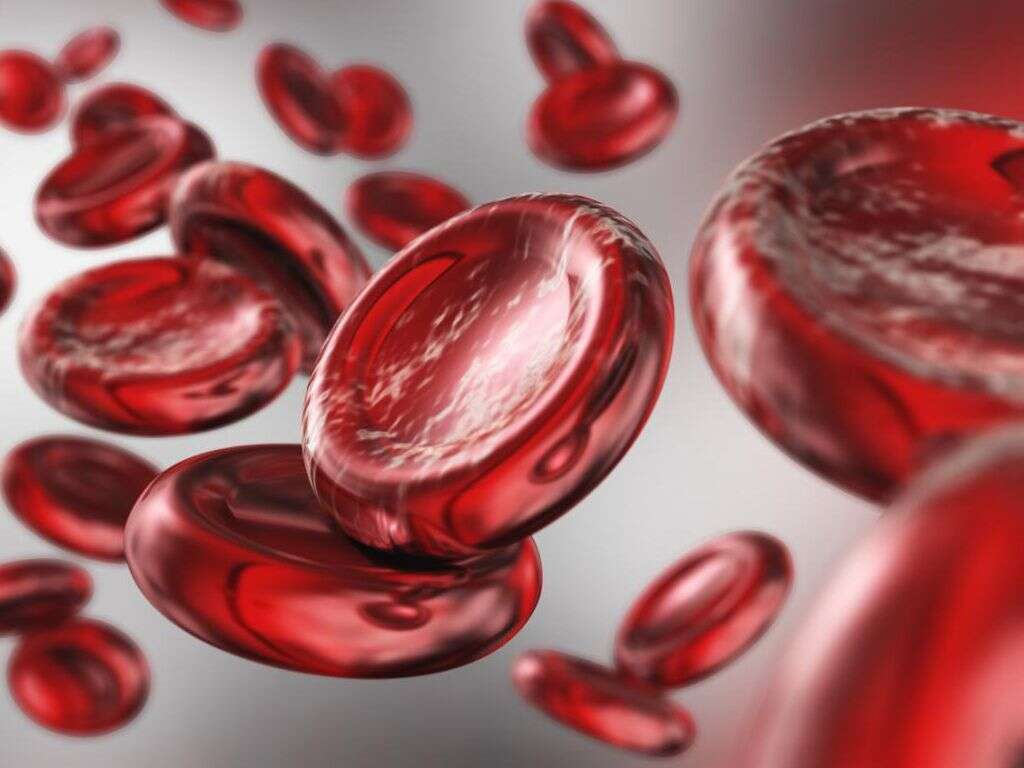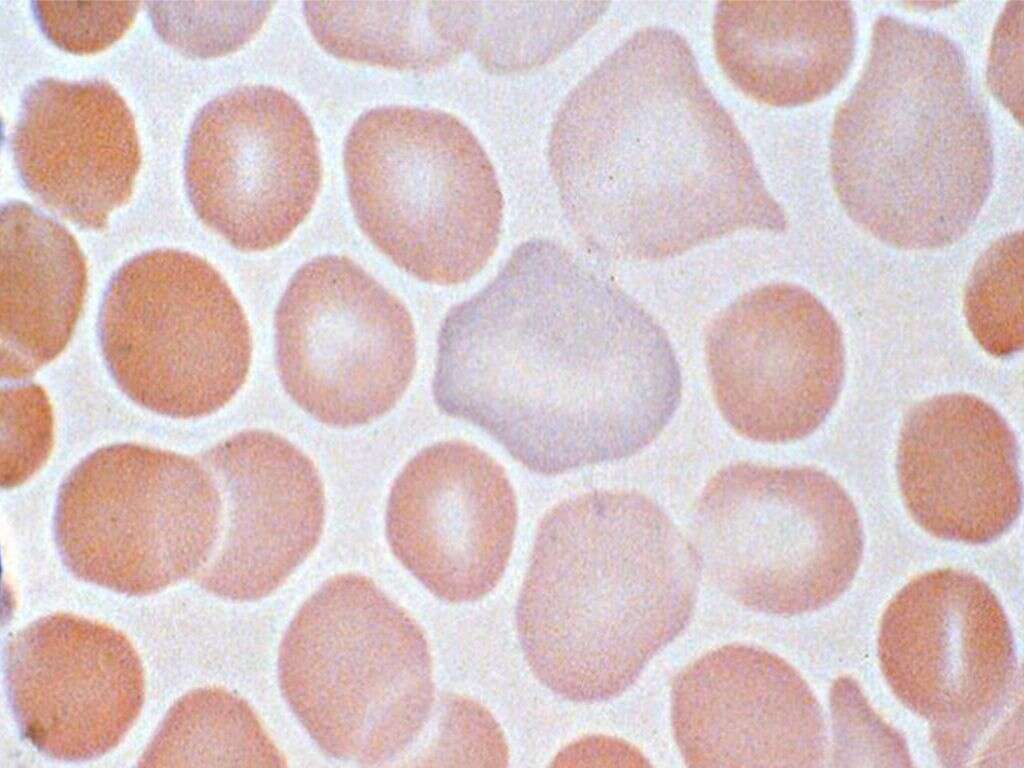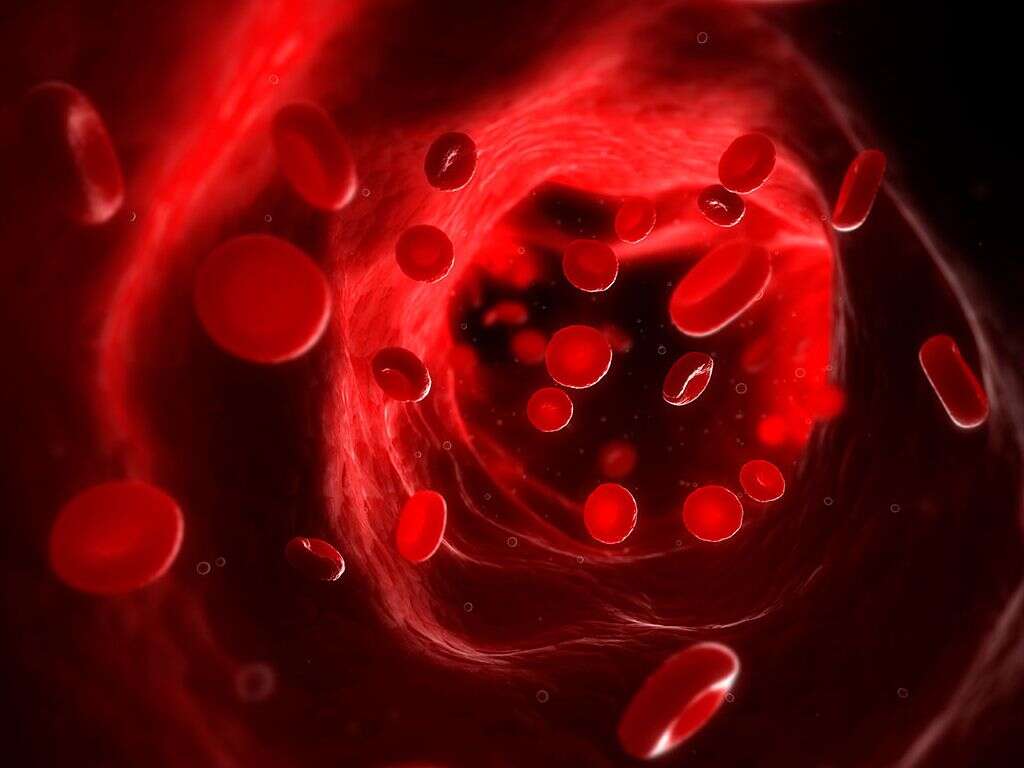10 Symptoms of Anemia
Anemia is a term that is used to define a decrease in red blood cells. The symptoms of anemia depend on the onset of the anemia occurring. In a gradual onset, the symptoms are often less noticeable and vague while in a more acute setting, it has more severe symptoms. Additional symptoms of anemia depend on the underlying cause. Anemia can be categorized into three main types based on the mechanism such as anemia due to blood loss (such as trauma or internal bleeding), lowered production of red blood cells (such as deficiency of iron or vitamin B12, thalassemia, or disorders in the bone marrow), or higher rate of red blood cell breakdown (such as sickle cell anemia, infections, and autoimmune diseases).
It can also be classified based on the size of the red blood cells where smaller sizes are known as microcytic anemia and bigger sizes known as macrocytic anemia. Anemia is a very common condition worldwide and it affects females more often (twice as much). Children, pregnant women, and elderly patients are at higher risk as well.
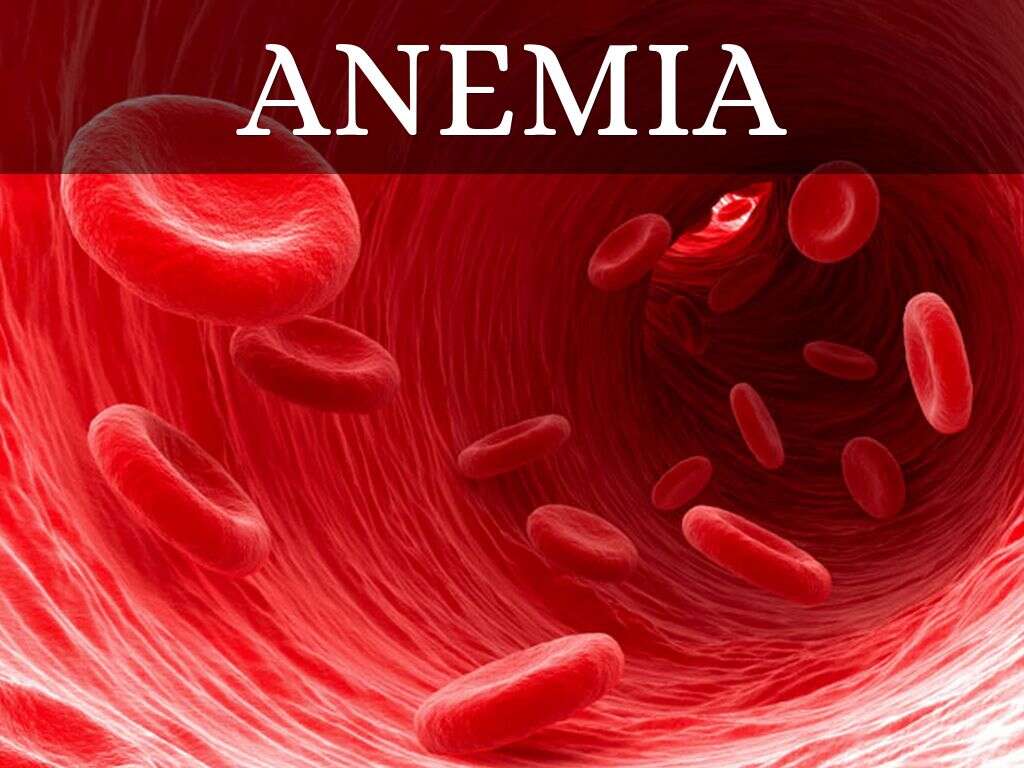
Symptom #1: Fatigue
In anemia, since there is a decreased capability of the body to supply oxygen to other parts of the body due to a low amount of red blood cells, the affected individual naturally feels much more tired than the average person. It is one of the commonest symptoms of anemia and affects more than 50% of those affected.
The red blood cell contains hemoglobin that carries oxygen to tissues and muscles. Without adequate red blood cells, there is less oxygen and the heart will have to work harder to pump faster. Many patients with a gradual onset of anemia may not notice and attribute their tiredness to other causes.

Symptom #2: Pallor
Pallor is a term that describes the paleness of the skin and occurs due to a lower amount of oxyhemoglobin (oxygenated hemoglobin). The paleness can be seen on the skin, conjunctiva, mucous membranes, face, and palms.
The paleness is caused by the deficiency in red blood cells as the hemoglobin in red blood cells give the red color of blood. This is why the skin loses its rosy color in patients with anemia. Pallor is most commonly seen in moderate and severe cases of anemia.

Symptom #3: Breathlessness
In patients with anemia, there may be breathlessness or shortness of breath as the body struggles for oxygen. Oxygen delivery to the tissues is compromised and as a result you may end-up breathless.
Normal activities such as walking, increases oxygen demand to the muscles. If you are experiencing shortness of breath with mild activities and concurrently have other symptoms such as pallor and tiredness, it may be due to anemia, so you should seek medical attention for proper diagnosis.
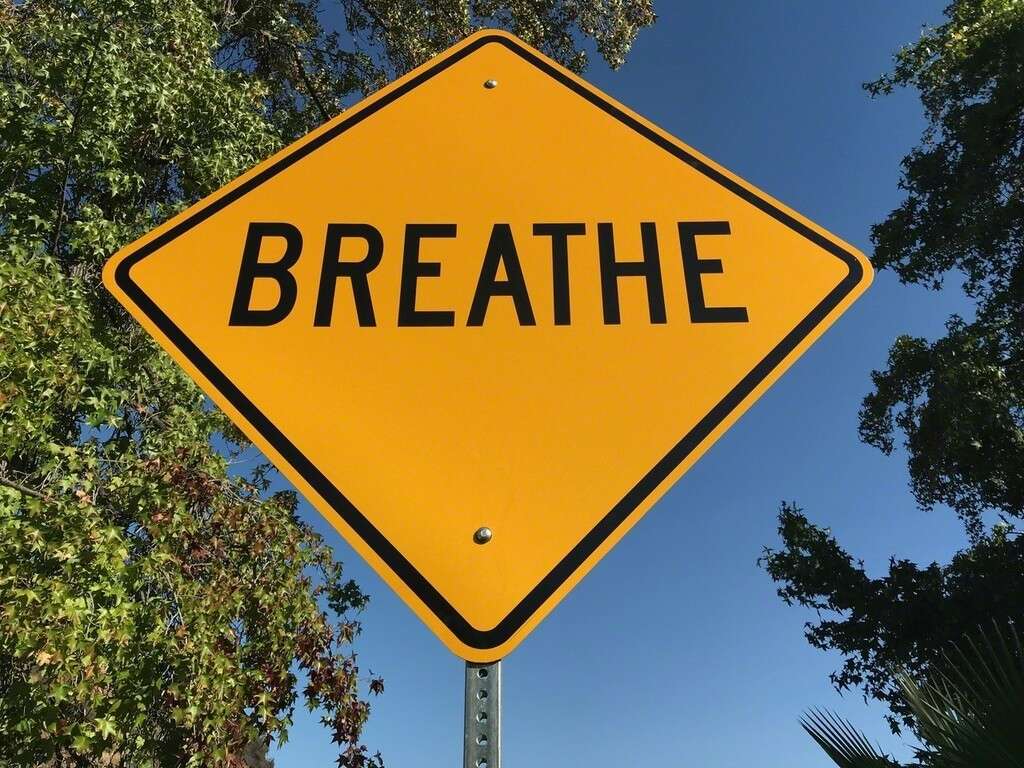
Symptom #4: Dizziness
In anemia, patients may feel dizzy as there is not enough hemoglobin to carry and deliver the oxygen to the tissues in the body. Dizziness occurs when there is a decreased amount of oxygen to the brain. The treatment of the dizziness will depend on the underlying cause of anemia.
If it is due to a nutritional deficiency, supplements can be prescribed. In those with reduced production, drugs that stimulate the production of red blood cells can be prescribed. Excessive dizziness can be serious as it can cause falls and other injuries. Seek prompt medical care.

Symptom #5: Heart Palpitations
Palpitations are described as the perceived abnormality of the heartbeat. The patient is aware of the heart contractions. There are many causes of palpitations such as anemia, anxiety, heart disease, and more. Palpitations can be intermittent and vary in duration and frequency. Symptoms that are associated with palpitations are dizziness, breathlessness, sweating, chest pain, and headaches.
In anemia, as there are low levels of red blood cells and hence low hemoglobin, the heart has to pump harder to ensure oxygen is supplied. This causes irregular heartbeats or the feeling that it is beating unusually fast. Extreme cases lead to an enlarged heart, murmur, and eventually heart failure.

Symptom #6: Glossitis
In iron deficiency anemia, the tongue may appear to lose the papillae leading to a shiny and bald appearance. This is known as atrophic glossitis. There is also paleness seen in the mucous membranes in the oral cavity and other parts of the body.
There is a higher tendency of oral ulceration. Pernicious anemia caused by vitamin B12 deficiency can also lead to glossitis where the tongue can be described as “beefy” or “fiery red” in appearance. It can also be sore and have patchy red lesions.

Symptom #7: Dry Skin
In anemia caused by iron deficiency, the skin, hair and nails can have a different appearance. The commonest and easiest to spot is dry skin. In iron deficiency, there is less hemoglobin and therefore lowered ability to supply oxygen to the rest of the body.
The body then redirects the oxygen to the more important structures in the body such as the brain and kidneys and structures like the skin, hair, and nails can be neglected leading to a dry and brittle appearance. Severe cases of iron deficiency have even been seen to cause hair loss.

Symptom #8: Angular Stomatitis / Cheilitis
Angular stomatitis or cheilitis is a term used to describe inflammation in one or both corners of the mouth where it can appear reddened with breakdown and crusting of the skin. In some cases, it can be itchy and painful lasting for days to years.
There are many causes such as anemia (iron or vitamin B12 deficiency), infection (by Candida Albicans or Staphylococcus aureus), allergies (to toothpaste, food, or makeup), or irritation (constant licking of the lips, poor-fitting dentures, drooling, mouth breathing, smoking, exposure to the sun, and trauma). Treatment depends on the underlying cause of angular cheilitis, so proper diagnosis by a physician is required.
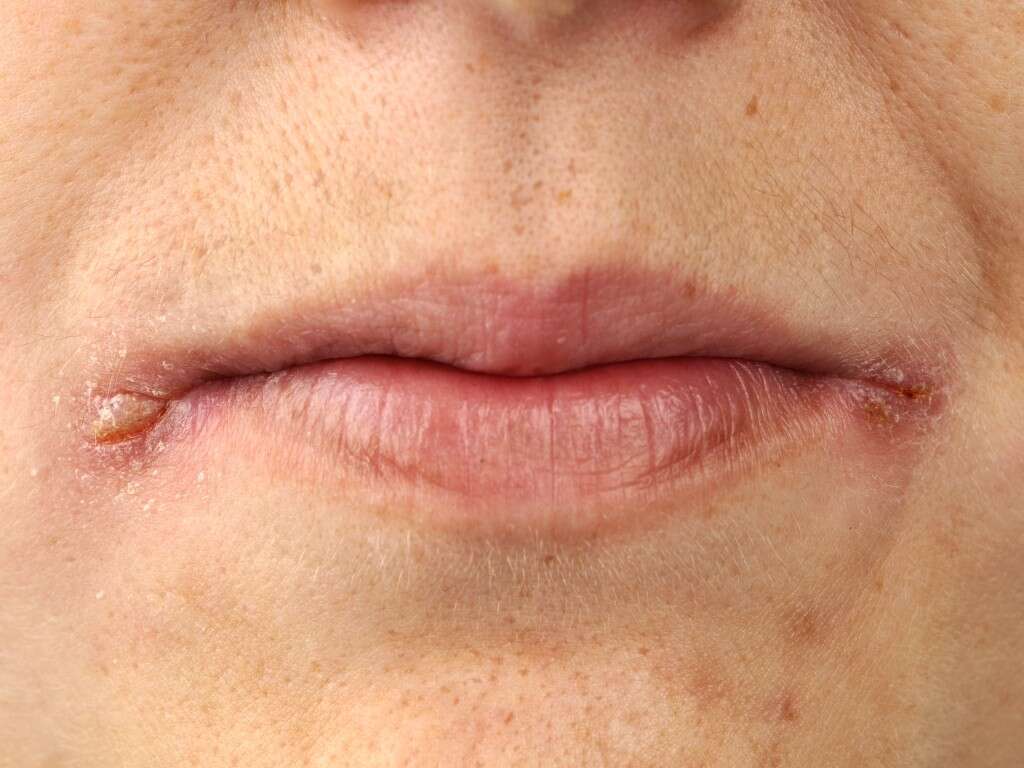
Symptom #9: Restless Legs Syndrome
Some studies have found that iron deficiency is linked to restless legs syndrome. Therefore, restless legs syndrome may also be seen in those with iron deficiency anemia. Bear in mind that there are other conditions that may cause this disease as well. If you think you might be suffering from this condition, seek medical attention for proper diagnosis.
Restless legs syndrome is a disorder where affected individuals have a strong urge to move their legs as the unpleasant sensation improves with movement. The discomfort generally occurs when the patient is at rest. This causes them to have difficulty sleeping leading to other symptoms such as daytime sleepiness, irritability, low energy, and depression.

Symptom #10: Cold Hands and Feet
This is a common symptom associated with patients suffering from anemia. It is especially important in patients with significant blood loss as the cause of their anemia.
During a hemorrhage, blood is diverted from the extremities (hands and feet) in order to supply the more important organs in our bodies. The decreased blood flow results in colder extremities.




